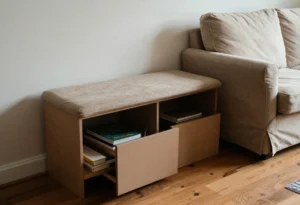Maintaining a swimming pool is a rewarding task that ensures a clean, safe, and enjoyable environment for relaxation and entertainment. A well-maintained pool not only extends the life of the pool itself but also prevents health issues related to poor water quality. In this guide, we will cover essential tips and strategies for keeping your swimming pool in top condition, ranging from regular cleaning routines to chemical balance management, ensuring your swimming pool remains a refreshing oasis for family and friends.
 Regular Cleaning Schedule
Regular Cleaning Schedule
Maintaining a clean swimming pool is crucial for the health and safety of its users. Implementing a regular cleaning schedule is the first step toward achieving a pristine pool. This includes skimming the pool’s surface daily to remove leaves and other debris, as well as vacuuming the pool floor to prevent the accumulation of dirt and algae. A clean pool not only looks inviting but also significantly reduces the need for chemical treatments.
Brushing the walls and the floor of the pool at least once a week is essential to dislodge algae and prevent it from taking hold. Pay special attention to corners and crevices, where dirt and algae are more likely to accumulate. Consistent mechanical cleaning complements chemical maintenance, ensuring that your pool remains a safe and sanitary environment for everyone to enjoy. You can even get a robotic pool cleaner to make this task more manageable and save time. It’s also crucial to clean the pool’s filters regularly to ensure proper circulation and filtration of water.
Chemical Balance Management
The chemical balance of your pool water is a critical factor in maintaining a healthy swimming environment. Regularly testing the water for pH, chlorine, and other chemical levels is necessary to keep the water balanced and safe for swimmers. The ideal pH level for pool water is between 7.2 and 7.6, which ensures that the chlorine remains effective in sanitizing the water without causing irritation to swimmers’ eyes and skin.
It’s also vital to adjust chemical levels promptly when they fall outside the recommended ranges. This might involve adding chlorine to keep the water sanitized, using a pH increaser or decreaser to adjust the acidity, or applying algaecide to ward off algae growth. Proper chemical management not only promotes crystal-clear water but also protects the pool’s surfaces and equipment from damage.
Equipment Maintenance and Upkeep
Ensuring that your pool’s filtration system is functioning correctly is essential for maintaining water clarity and hygiene. Regular inspections and cleaning of the filter, pump, and skimmer baskets help to keep the system running smoothly, preventing potential problems that could lead to costly repairs. Backwashing the filter or cleaning the filter cartridges, as per the manufacturer’s instructions, should be part of your maintenance routine.
Keeping the pool area tidy and free from debris not only enhances the pool’s aesthetic appeal but also prevents contaminants from entering the water. Ensure that pool covers are clean and in good condition to protect the pool when not in use. Routine checks and maintenance of pool equipment and accessories extend their lifespan and contribute to the overall enjoyment and safety of your swimming pool. It’s also important to follow the manufacturer’s instructions for winterizing your pool, if applicable, to prevent damage during the colder months.
Seasonal Adjustments for Pool Care
Adapting your pool maintenance routine to the changing seasons is essential for its longevity and usability. During the warmer months, increased usage and higher temperatures can lead to a quicker imbalance in chemical levels and faster algae growth. It’s crucial to monitor the pool’s condition more frequently, adjusting the chemical balance as needed and perhaps increasing the frequency of vacuuming and skimming.
In contrast, cooler months might see less pool use, but this doesn’t mean maintenance can be neglected. Continue to check chemical levels regularly to prevent water problems that could be difficult to correct in the spring. Additionally, consider winterizing your pool if you live in an area with freezing temperatures, which involves lowering the water level, adding winter chemicals, and securely fitting a pool cover to protect it from debris and weather conditions. Most importantly, never let the pool sit unattended for extended periods as this can lead to costly repairs and safety hazards.
Water Conservation Techniques
Water conservation is becoming increasingly important in pool maintenance, not just for environmental reasons, but also to reduce costs. One effective strategy is to use a pool cover, which significantly reduces water evaporation and keeps the pool cleaner, reducing the need for refills and constant cleaning. Solar covers even have the added benefit of warming the pool water, cutting down on heating costs.
Another method is to regularly check for leaks in the pool structure and its equipment. Even a small leak can lead to significant water loss over time. Fixing leaks promptly not only conserves water but also prevents further damage to the pool and its surroundings. Incorporating native plants around the pool area can also help with water retention in the soil, making your pool environment more sustainable and visually appealing. When it does come time to drain your pool, consider using the water for landscaping purposes rather than letting it go to waste.
Enhancing Pool Safety
Ensuring the safety of swimmers should be the top priority of any pool owner. Installing proper fencing around the pool area with self-closing, self-latching gates can significantly reduce the risk of accidental falls into the pool, especially for households with children or pets. Additionally, maintaining clear visibility in and around the pool area helps prevent accidents and allows for immediate response in case of emergency.
Beyond physical measures, educating everyone in the household about pool safety and emergency procedures is essential. This includes understanding the correct use of pool drains and covers to avoid entrapment, knowing how to perform basic water rescues, and having life-saving equipment readily available. Regularly reviewing and practicing these safety measures can ensure that fun times in the pool remain safe and enjoyable for everyone.
 Maintaining a swimming pool involves consistent effort and attention. Regular cleaning, chemical balance management, equipment upkeep, and seasonal adjustments are all crucial for keeping your pool in top condition. By incorporating conservation techniques and prioritizing safety, you can ensure that your swimming pool remains a refreshing and inviting oasis for years to come. With these tips, you’ll be well on your way to becoming a pool maintenance pro. Try implementing them today and see the results for yourself!
Maintaining a swimming pool involves consistent effort and attention. Regular cleaning, chemical balance management, equipment upkeep, and seasonal adjustments are all crucial for keeping your pool in top condition. By incorporating conservation techniques and prioritizing safety, you can ensure that your swimming pool remains a refreshing and inviting oasis for years to come. With these tips, you’ll be well on your way to becoming a pool maintenance pro. Try implementing them today and see the results for yourself!



 Regular Cleaning Schedule
Regular Cleaning Schedule